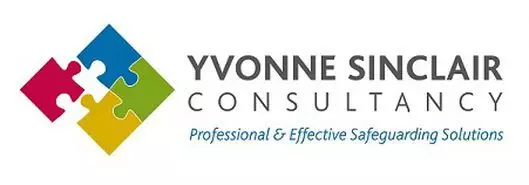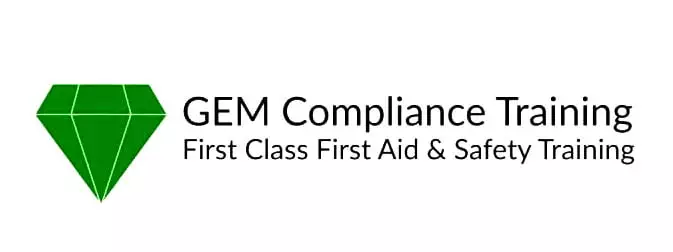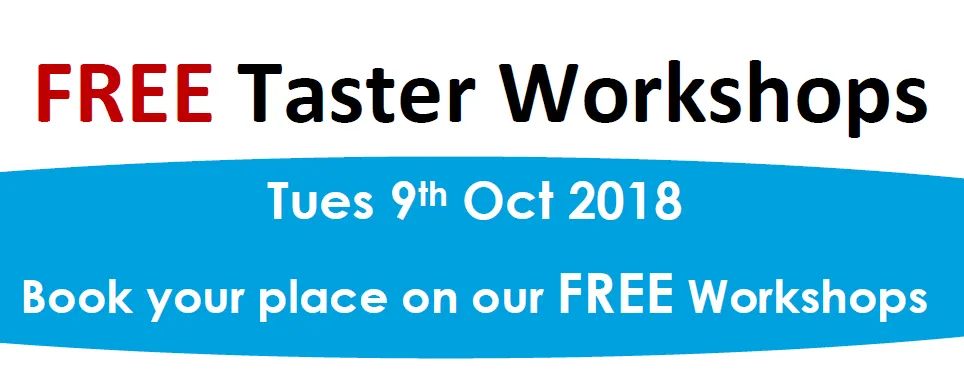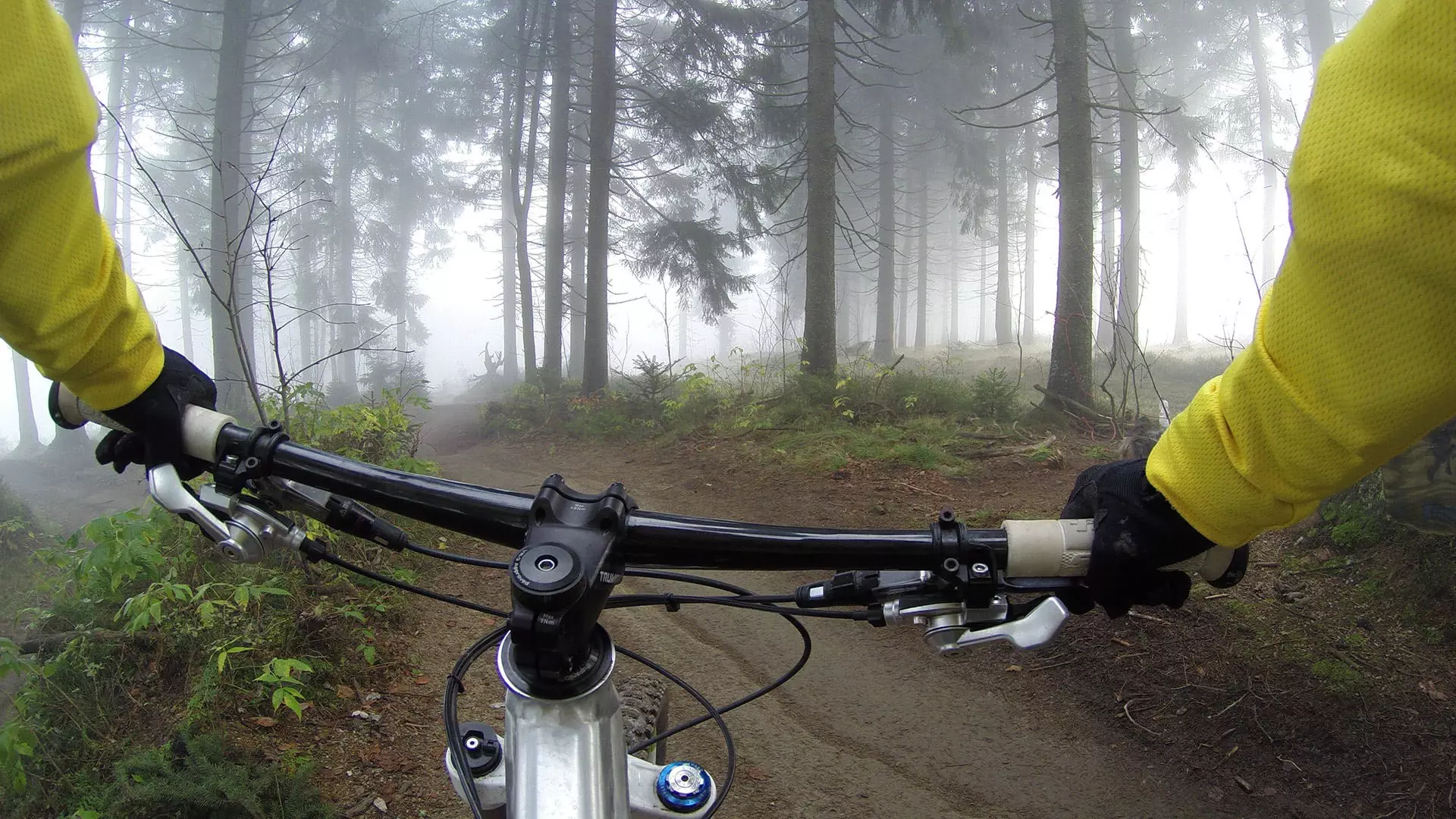News
New Year - To resolve, or not to resolve - that is the question...
New Year - To resolve, or not to resolve - that is the question...
By Karen Amos
Well it’s that time of year again! Social media has been awash with New Year posts and I have to admit, even as a coach, I get a bit jaded with all this ‘New Year – New You’ malarkey.
So… amidst all the opinions, the question remains, ‘Is New Year a good time for Resolutions,’ and should we be doing them anyway? My opinion is an unequivocal – ‘If you want…!’ Yes, that’s right, I’m not going to advocate either way, because do you know what? - If you’re having to force yourself to make a life change it’s highly unlikely to work. So don’t bother, save yourself time/money/guilt [delete as appropriate] and carry on regardless.
On a positive note, New Year can be an excellent time for gaining motivation to change. Most people are feeling the need to de-tox after over-indulging over the holiday period and are feeling more rested and motivated. There’s also a sense of being ready for a new start for lots of people. If this is how you feel – GO FOR IT! Often we need a bit of pain (e.g. The awful reality of tight waistbands and admitting all our clothes haven’t really shrunk in the wash…) to give us the fillip we need to make change.
Perhaps we should change our language and avoid the term ‘resolution’. After all, what we’re usually talking about is a long-term change in our habits. When we use the term ‘resolution’, we usually couch this in terms of a negative – i.e. We will ‘STOP’ or ‘GIVE UP’ something. Actually, that approach rarely works, as we just end up obsessing about the thing we’re trying to avoid. Ever heard the phrases, ‘You get what you focus on,’ and, ‘What you resist, persists’? On a very basic level, this means that if you try to stop doing something, you only bring it to your attention more – I’m sure my fellow chocaholics will know this feeling well…
Instead, we need to drill down to what we really DO want. i.e. Do we really want to stop eating chocolate, or do we want to feel fitter and more confident physically? In this case, chocolate is only one part of the issue – what we really need to do for success is to work out what steps we need to take to attain the fitness. If this is less rewarding than the chocolate, then you’re going to be in for a lot of disappointment. The key is to build in a tangible goal with a set of positive habits (Habits being small actions you do regularly) that will lead you to the positive life you’re choosing. (More on this in a forthcoming post).
If your thing is more related to work-life balance in the coming year for example, build in what you ARE going to do, rather than what you AREN'T. Again, I'll post more on this in the next few days.
So if you’ve set a resolution or goal, then good luck with that. If you can’t be bothered, then good luck too – you’ll know best when you need to make a change. In any event, here’s to a positive and productive 2019 for everyone!
Karen Amos is the founder and owner of BrightBird Coaching & Training. She is a qualified Executive and Professional Development coach and trainer, working with organisations and businesses to get the best out of leaders and teams.
If you’d like to know more about BrightBird’s professional development services and how we can help you and your business, school or organisation, please check out our website at www.bright-bird.co.uk, or email [email protected]
Solving the Christmas Shopping Dilemma...
By Karen Amos
Well, it’s that ‘Time of Year’ again! I was in town last week and was struck by how stressed and unhappy all the shoppers looked. We’re sold a dream of a joyous Christmas, but in reality, there just seems to be lots of pain for everyone.
I’ve had a bit of an epiphany over the last couple of years regarding gift-giving. I could see I was just accumulating more ‘stuff’ and as time goes on (not that I’m getting old mind!), I’m all for decluttering and down-sizing. I think this stems from developing a sense of my own personal values and knowing what’s really important to me. Let’s face it, few of us would own up to personal values of greed, avarice and ownership of as many unused things as possible, yet that seems to be the mission so many people go on every year in December.
My husband and I changed our approach last year and asked everyone not to buy us any gifts, as we had everything we needed. For our family, we gave what they valued most – our time. We gave a ‘gift voucher’ for a ‘Grand Day Out’, with Malcolm, the Chauffeur (aka my better half) and Karen, the Tour Guide. We had a super day in the Lake District, taking our parents out to places they wouldn’t normally have gone. And guess what? They asked for this again for their present this Christmas and have also asked if they can do the same for us. Yes!!
So before launching into the next buying frenzy, why not take a few moments to ask what you and others would really choose for Christmas – rather than what the large retailers would like you to buy. The answer could be more enjoyable than you thought…
Karen Amos is the owner of BrightBird Coaching & Training. She is a qualified Executive and Professional Development coach and trainer.
If you’d like to know more about BrightBird’s professional development services and how we can help you and your business, school or organisation, please check out our website at www.bright-bird.co.uk, or email [email protected]
FREE Taster Sessions for Schools - 9th October 2018
We're delighted to bring you a day of FREE Taster Sessions for schools in partnership with Gem Compliance Training and Safeguarding Support.
Choose from the following workshops:
- Keeping Children Safe in Education 2018
- Managing Difficult Conversations in Safeguarding
- Basic Life Support and Safe Use of an AED
Date: Tuesday 9th October 2018
Duration: Each session lasts 90 minutes. Sessions at 9.30, 11.30 and 2pm.
Venue: City Training Services, 39-41 Chapel Street, Bradford, BD1 5BY
To book, or for more information, follow the link here: https://bookwhen.com/tastersessions
Karen Amos is the owner of BrightBird Coaching & Training. She is a qualified Executive and Professional Development coach and trainer.
If you’d like to know more about BrightBird’s professional development services and how we can help you and your business, school or organisation, please check out our website at www.bright-bird.co.uk, or email [email protected]
How to make 'Doing the Right Thing' a little easier...
By Karen Amos
Have you ever experienced a situation where a course of action has been taken based on what’s ‘legally right’, but you've been left with a sense of unease that the situation is somehow inherently ‘wrong’?
As a coach, I’m frequently presented with difficult and complex situations regarding interpersonal and organisational behaviour. I’m often required to make a judgement call regarding my own response, following some disclosure from a client or sponsor.
In difficult situations, we’re often overcome by fear and uncertainty regarding the possible consequences of our actions and decisions. Over time, I’ve found my own strategies to develop what my coach supervisor calls ‘clear-sightedness’ – i.e. a way to tune in and sense when things aren’t feeling right. I believe this is something we can all develop and in doing so, will help us make the difficult decisions we face. Here are a few tips:
- Know your values – Do you know what you stand for? What you believe in? I’m not talking about religious beliefs as such, but we all benefit from having a clear ‘moral compass’ to determine our own behaviour.
- Know the difference between ‘legal’ and ‘ethical’ – when presented with a situation, consider whether there is a difference between these two viewpoints and where you stand on them – which weighs heaviest for you? Ask yourself whether there’s a way to balance both.
- Trust your ‘gut’ – Learn to recognise that inner voice or feeling that’s telling you that things are ‘not ok here’. Ask yourself what the feeling is and where it’s coming from. If need be, buy yourself some time to reflect and if necessary…
- Get a sounding board – I have a coach supervisor, with whom I can discuss any ‘sticky’ issues that occur in my work and where I can develop resilience for the future in similar situations. Do you have a mentor, or someone you can discuss sensitive issues with in confidence? These don’t always have to be on huge issues and there's often a benefit in what I like to call ‘Is it me…?’ phone calls to a trusted person.
Of course, this list isn’t exhaustive, but hopefully will go some way to helping you find your way through difficult situations, knowing you’ve ‘done the right thing’.
Karen Amos is the owner of BrightBird Coaching & Training. She is a qualified Executive and Professional Development coach and trainer.
If you’d like to know more about BrightBird’s professional development services and how we can help you and your business, school or organisation, please check out our website at www.bright-bird.co.uk, or email [email protected]
The Power of Positive Disruption is Yours...
The Power of Positive Disruption is Yours...
By Karen Amos
I just thought I’d share a few thoughts following Social Enterprise Yorkshire and Humber’s interesting and stimulating 2018 annual conference. The theme was ‘Positive Disruption‘.
It was a great opportunity as a coach to build resources to help shape thinking, change mindsets and encourage positive, creative future change.
Here are just a few quick points I picked up:
- To be Positive Disruptors, we need to be good leaders of people.
- Positive Disruption often starts with just one person, who speaks up that something isn’t working and who wants to do something different about it.
- It’s about being ambitious and not always going for the ‘low hanging fruit’.
- Don’t make assumptions – ask questions – start conversations – collaborate – connect.
- Change behaviour by changing viewpoints and mindsets – create a ‘new normal’.
- Don’t jump to finding solutions before you’ve worked out what you’re trying to solve.
- Look outside your current industry or situation for patterns, similar issues and solutions that you can apply to your problem.
- Be passionate about what you do and believe there’s a better way when you encounter problems and difficulties.
Disruption is an oft-used term at the moment, but it was clear to me that we all have the power to make change if we care enough.
Thanks to Kathryn Sowerby, Shaun Doran, Sarah Armstrong, Joe Micheli, Richard MacCowan and Elliott Turnbull for sharing their thoughts and ideas.
Karen Amos is the owner of BrightBird Coaching & Training and is a qualified Executive Coach and Professional Development Trainer.
Overcoming Procrastination - Step away from the cat videos...
Overcoming procrastination - Step away from the cat videos...
OK, so it’s time to turn off the cat videos and knuckle down to some work…
You know those jobs that you put off, when you convince yourself that dusting the skirting boards is oh so important? Well it’s time for me to finish off my ILM 7 Executive Coaching Diploma assignment. I’ve already gained the certificate qualification and love my work, but it’s so hard to find the motivation to sit down and get on with it sometimes.
Here’s a tip if you’re struggling to find motivation… create what we coaches call leverage for yourself. There are two ways of doing this – positive and negative.
Positive leverage is where I remind myself how great I’ll feel when I’ve achieved my Diploma and can give myself a reward for this.
Negative leverage is often more powerful and involves imagining the negative consequences of NOT doing my assignment – e.g. I won’t gain my qualification, I’ll be disappointed in myself, it’ll be hanging over me for ages….
It’s important you really reinforce both of these scenarios visually and also really tune in to what you’ll feel like. Make it as real as possible.
Right… now to turn social media off and get down to work!
Have a good day, no matter what you choose to do!
Karen Amos is the owner of BrightBird Coaching & Training and is a qualified Executive Coach and Professional Development Trainer.
To find out more about how BrightBird can help you and your business, school, or organisation, visit our website at www.bright-bird.co.uk
The cost of stress at work – can you afford to ignore it?
The cost of stress at work – can you afford to ignore it?
The latest figures from the Office of National Statistics show that in 2016, 137.3 million working days were lost to sickness or injury in the UK. Of these, stress, depression and anxiety accounted for 7.7%. (‘Serious Mental Health Problems’ were counted in a separate category) That’s over a million days lost.
The cost of this isn’t purely financial, there are also other impacts which are often more difficult to quantify. These include high staff turnover, lack of productivity and low levels of motivation and morale amongst teams, along with the risk of longer-term and serious mental health and physical wellbeing issues.
Stress is often now seen as an inevitability. A recent survey in the not-for-profit sector showed 79% of staff stating stress is a fact of life in their work and 46% saying they feel stressed all or most of the time. Just check back on those figures again – nearly 4/5ths accept stress as a fact of life and nearly half feel stressed all or most of the time.
Having managed teams for over 20 years, I know that circumstances, often out of our control, can have a negative impact on staff and teams. My own past experience of suffering severe stress and seeing the effects on others drives me to do what I do, to ensure people have as positive a working life as possible. After all, we spend so much of our time at work and many of you will know that negative experiences at work frequently spill over into our personal lives.
I believe there are two issues to address here – communication and responsibility. The responsibility for work-place wellbeing lies with everyone. With the employee to flag up any issues and difficulties and to be willing to take positive action to resolve these. With the employer/manager to truly acknowledge difficulties and challenges faced by the staff team and to be willing to give genuine, positive support and assistance where needed.
As a coach, I often find that a recurring barrier to a positive working life is lack of communication. Employees often don’t speak to their managers about their difficulties for a variety of reasons, for example being afraid of damaging career prospects, appearing incompetent, or even negative past experiences. Everyone makes assumptions that staff/managers ‘should know‘. A recent report called Thriving at Work, recommends employers encourage better communication and involvement and routinely monitor employees’ mental health and wellbeing. Remember, ‘monitor’ isn’t about forms and clipboards, it could be as simple as a manager taking time out to ask employees genuinely how things are going and being prepared to take supportive and positive actions to resolve any difficulties. Lack of communication can become self-perpetuating, whereas building positive communication and problem-solving approaches can produce a ‘virtuous cycle’ of increased engagement, wellbeing and productivity.
Karen Amos is the owner of BrightBird Coaching & Training. She is a qualified Executive and Professional Development coach and trainer.
Want to know more? Check out BrightBird’s open training workshops on Manage Stress and Build Personal Resilience and also Time Management and Work-Life Balance. To find out more and to book, please click on the link – www.bright-bird.co.uk/book-a-course
If you’d like to know more about Brightbird’s professional development services and how we can help you and your business, school or organisation, please check out our website at www.bright-bird.co.uk, or email [email protected]
Free Safeguarding Event and new alliance for Bright Bird Coaching & Training
Free Safeguarding Event and new alliance for Bright Bird Coaching & Training
Book your FREE place at our Safeguarding event in October!
And find out exciting news about our forthcoming alliance with GEM Compliance Training and Yvonne Sinclair Consultancy.


How to overcome the accounting blues with bananas...
How to overcome the accounting blues with bananas...
Well here I am – clear evidence that not all people in business are Richard Branson… I’ve several deadlines to hit this week, so taking bank holiday off, just isn’t an option. This isn’t so unusual for me and many other self-employed people, but the problem is today I’ve got the dreaded accounts to finish.
Yes, like many people, this is far from my favourite job, but of course it has to be done and my lovely accountant is eagerly awaiting the finished item, ready for our meeting in a few days time. (Amazingly it appears some people actually choose to do this stuff).
Prof. Steve Peters has a brilliant way of getting yourself to do things you wouldn’t usually want to do. He calls it ‘giving your chimp a banana’. The very basic tenet here is that your inner chimp is the bit of you that wants to go play/sleep/[insert own non-account-based activity here] – in other words chimps do NOT like accounts. One way of getting around this is to do a bit of a deal with your chimp. Prof. Peters calls this ‘Giving your chimp a banana.’ In basic terms this is you saying, ‘Hey chimp – I know you’re not happy, but if you sit here quietly and let me do these pesky accounts, then afterwards we’ll go out and play/socialise/[insert own chimpish, fun-based activity here].
This has the added advantage of getting the important, but boring stuff done, but also ensures you get to schedule the nice stuff in too!
So whatever you’re doing, hope you’re having/had a good bank holiday weekend. Now where’s my stapler…
If you’d like to know more about Prof. Peters’ work, I can highly recommend his book – Peters, S. (2012). The Chimp Paradox. London. Vermillion.
Get out of your comfort zone – then it’s downhill all the way!
Get out of your comfort zone – then it’s downhill all the way!
Here’s the second of my musings following my recent mountain biking and hiking holiday to the French Alps.
As you may recall from my first blog (If you didn’t manage to catch it, you can find it here), I have a ‘More Enthusiasm Than Ability’ approach to many of my hobbies, with mountain biking being a classic example.
I was very excited to be going on this holiday, it had been a long time in the planning. I was particularly looking forward to the long sweeping mountain bike runs down the mountain, having first hitched a ride up on a ski lift, thus eliminating the need to pedal uphill for the whole holiday!


Well that was the dream! The reality, as I soon discovered, was that there was an alarming disparity between the difficulty of the runs and my ability to remain upright on my bike whilst navigating them! (Cue various mountain rescue scenarios involving paramedics and helicopters running through my mind). Additionally, despite going up the mountain on the chair lift, there were still some huge inclines to tackle. So what to do? Well, my choices were:
- Only do really easy, boring routes with the under 7’s
- Go for the easy option and hire an electric bike like many other people had
- Go for it anyway
There were two main drivers in my decision here. Firstly, that I’d be so disappointed if I’d missed out on an opportunity I’d looked forward to for ages and secondly, my partner Malcolm, who (unsurprisingly) is a much more proficient rider than I am, would also miss out if I didn’t do what we’d planned. So yes, you’ve guessed it, we went off and mountain biked – and it was SCARY and tough and hard work and steep and scary again! But it was also exhilarating and fun and challenging and ultimately fulfilling and miraculously, my biking ability and self-confidence got so much better, so quickly.
Tony Robbins often coins the phrase, ‘If you lie down with dogs, you get fleas’ and this, I think is the moral of my tale – not that I am saying Malcolm has fleas mind you – but rather, had I have hired an electric bike, or done the easy-peasy routes with the less advanced cyclists, I’d have never have improved (or had such a good time). What actually happened is that Malcolm would hurtle ahead of me on his bike and I’d rattle along behind, doing my best to keep up, but knowing that because he’d done it, it was in fact possible. As a result, I raised my game and got WAY out of my comfort zone.
But here’s the really interesting point I think – every time I broke that comfort zone barrier, that became my new ‘normal’. It really didn’t take time after time to do this, just doing something once became just ‘what I do’. This I believe, is the real key to personal improvement of any kind – growth and development will only come hand in hand with some discomfort or difficulty if it is to be truly meaningful and worthwhile, whether that’s in business, professional life, or just life in general.
So what’s your next challenge – and who are you going to enlist to help you get there?










